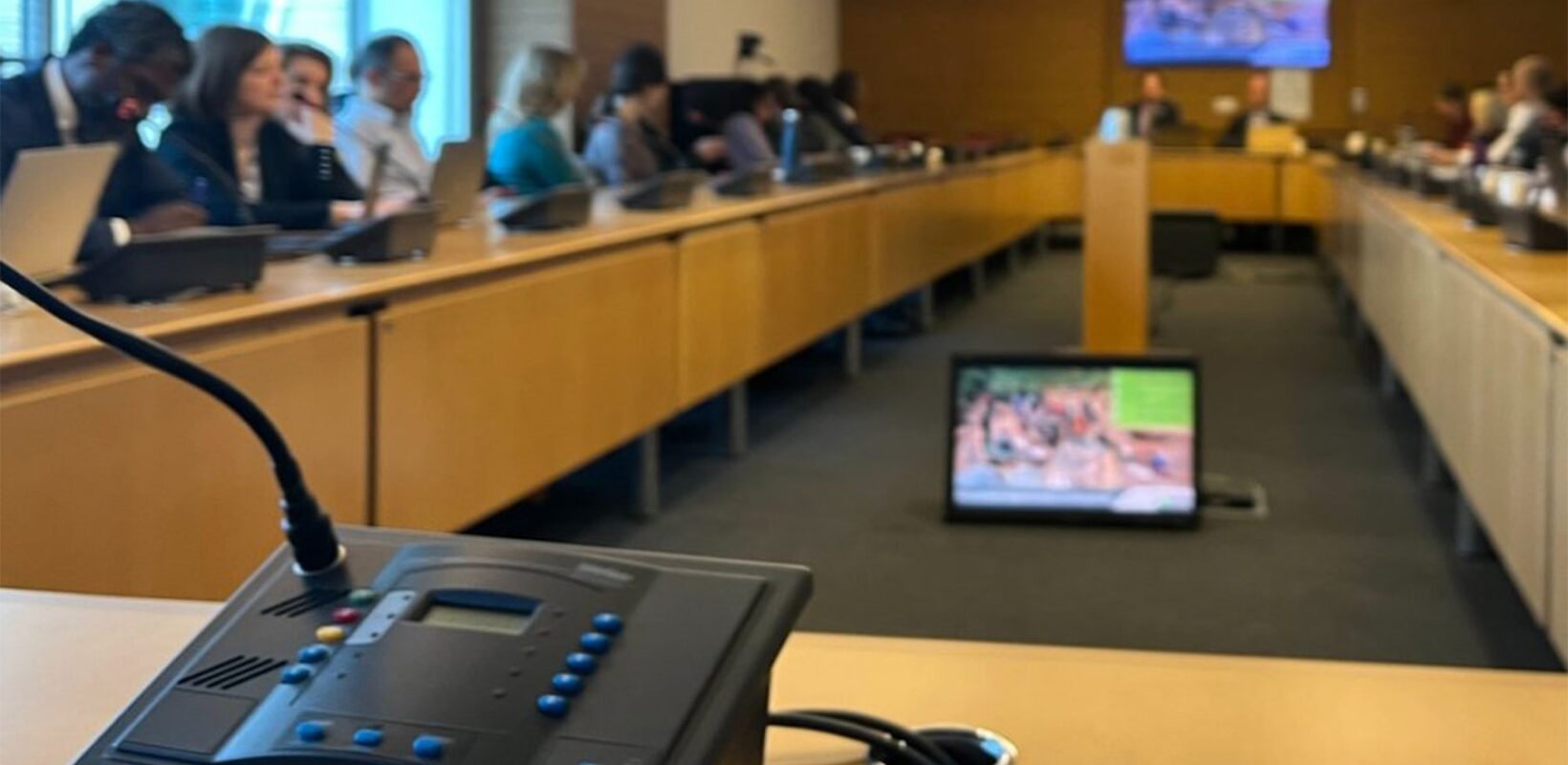
Reflections from our team on the OECD Minerals Forum 2023
After three years, the OECD’s annual Forum on Responsible Mineral Supply Chains was finally held again physically in Paris on April 24-28. Kumi attended the Forum meeting old and new friends, reconfirming how important personal relationships are to learn from each other and jointly advance responsible sourcing. Here are some of the team’s reflections:
Andrew Britton, Managing Director
Having regularly attended the OECD Forum since 2012, it was great to be back meeting in person, reconnecting with old friends and colleagues and also meeting in person for the first time people whom I’d only previously met on Teams/Zoom! Two key takeaways; one positive, the other less so:
On a positive note, it was clear the Forum agenda has finally moved beyond the focus on so-called “conflict minerals” and the Great Lakes region of Africa, to a clear articulation that the responsible minerals supply chain agenda is a global concern that applies to all minerals and a broad range of issue areas. Notably, environmental issues are starting to feature in the debate, as are broader social issues beyond ‘Annex II’ risks, such as abuses of labour rights. Many of us have been banging this drum for years, so it is great to see this reflected in the formal conference programme. As Luke notes in his reflections, in our due diligence work for companies we often find that the most serious risks in minerals supply chains – which are very relevant for the growing amount of due diligence legislation in Europe – are often the less ‘obvious’ risks that if you were focusing on Annex II risks you would completely miss.
On a less positive note, many of the panel discussions were, to put it politely, bland. If you’d told me I had entered a time warp and it was actually 2018, not 2023, I might have believed you! Major companies were presenting a picture that “everything is under control, there is nothing to see here”. Working in the midst of companies’ supply chains, as we at Kumi do, we know this is far from the reality. The truth is responsible sourcing is difficult, and things don’t always work as planned. We need more honest conversations about this. Civil society has a key role here: its role in raising awareness of risks and holding organisations to account is undoubtedly essential. However, this needs to be countered by a recognition that responsible sourcing is difficult, and therefore just because something is not perfect that doesn’t mean it’s completely broken. Give credit where it’s due, even if there remains more to do!
Luke Smitham, Manager
Having attended both the Garment and Minerals Forums this year, I can safely say that I left the Minerals forum with more energy than the Garment one. At the Garment Forum, as I have noted before, I was decidedly underwhelmed by the lack of basic understanding of what a due diligence system is and what it is supposed to do. At the Minerals forum, despite Andrew’s reticence, at least it seems that the baseline knowledge among participants is relatively high and expanding further as more minerals are being captured by regulatory frameworks.
I attended a few technical sessions where the detail on what may seem a relatively minor point was discussed at length, and the LME-EITI and ICOCA partner sessions were particularly interesting. Regarding ICOCA, they presented results of surveys of security guards at mines demonstrating the poor, and sometimes abusive, working conditions of these contracted workers. This mirrors findings the Kumi team has identified during site assessments, where in fact, despite their reputation, often guards work and live in horrifying conditions compared to other workers on site. It would be interesting to explore this further with other third-party labour used on mine sites, be they miners themselves, cleaners or catering staff. I would bet a lot of those workers also do not benefit from all their labour rights.
Finally, and to refer back to regulatory frameworks, I spent some time speaking with policymakers and regulators from Europe. I was interested to learn how different countries are interpreting and implementing laws, be they national or from the EU. Ultimately, it’s still early days and there is a lot of knowledge development. I hope that all the regulators align as much as possible on how they plan to implement responsible sourcing laws – a hodgepodge of regulatory approaches will make business in Europe infinitely complex and potentially lead to a race to the bottom to attract business. Thankfully, this does not seem the case , with stringent approaches being the norm so far.
Caroline Quirke, Senior Consultant
After a good few years of attending online only sessions, I was delighted to attend my first in-person OECD Forum. It was great to see different stakeholders from across the industry being brought together to discuss some of the most pertinent issues in minerals supply chains.
As with many previous forums, there were a lot of sessions on artisanal and small-scale mining. I was fortunate to attend quite a few panels, one particular highlight being the session run by the World Bank that focused on its ASM position paper. Attendees were encouraged to participate and it enabled discussions between a range of different stakeholders. It was evident that a focus on miners and their communities should be at the heart of decision-making as well as including the miners in the discussions at the very outset.
Moving away from ASM, one area that came up often in conversations was the lack of cross-recognition between industry schemes. This is well-noted within the industry and potentially leads to consequences such as audit fatigue. Aside from cross-recognition, it became clear that the industry schemes face common issues such as auditing and auditor quality, which can best be tackled together. As with many areas in this sector, cooperation is key.
Alex Graf, Senior Consultant
Having attended the OECD Forum for the first time in person, I clearly observed the ongoing shift from voluntary due diligence to mandatory legislation. While generally seen as an important step to level the playing field within a competitive market economy, there are multiple concerns that can be at times misaligned. Companies stressed the need for regulatory frameworks to focus on the practicality of due diligence requirements, e.g. by maintaining a strict risk-based approach as opposed to broader supplier engagement. In contrast, representatives of civil society queried the approach of recognising standards and certifications as a means to legal compliance, raising the fear that this may reduce companies’ responsibility and accountability in their own due diligence practices.
While important to remain vigilant, some of these and similar concerns do not always directly reflect the ambition or actual state of legislation. There is therefore a strong need for further education and exchange, and perhaps even more so for the implementation of (existing) tools to simply lift due diligence from legal paper to action – a bit less theorisation, instead more implementation! This goes hand in hand with the general agreement that regulations should be as precise as possible in order to avoid misinterpretations.
On a last note, it was very positive to see that environmental due diligence is also gaining some traction, as environmental risks often converge with negative social and human rights impacts. We are therefore eagerly waiting for the official publication of the OECD handbook on environmental due diligence!

